The best barrier creams are designed to protect your skin from the elements and provide a protective layer between you and the world. They can be used on their own or as part of a routine that includes other skincare products such as moisturizer, serum, or a face oil. As well as protecting your skin in general, some of these creams also offer specific benefits for cracked or dry skin such as eczema and psoriasis.
The type of barrier cream you need depends on what kind of skin you have. If you suffer from very dry patches then something with more emollient properties is going to work better than one that's too lightweight. If it's just everyday wear and tear that has left your skin looking worn down then something with antioxidants may be all you need to help soothe your complexion. Something without added fragrance is also recommended if possible since this will keep irritation at bay while allowing other ingredients to do their job properly.
If you're unsure where to start when it comes to choosing the right product for your needs, we've picked out five options that are known for being effective in various situations including those targeted towards people with sensitive skin and those that focus on repairing damaged areas through use of ceramides and hyaluronic acid.
How We Choose
We started by narrowing down the field to barrier creams, which are designed to protect your skin from irritants like wind and sun. From there, we looked at a variety of factors including active ingredients, customer reviews, price point and more. Finally, we picked out our top five Barrier Creams based on overall quality.
3M Cavilon Durable Barrier Cream
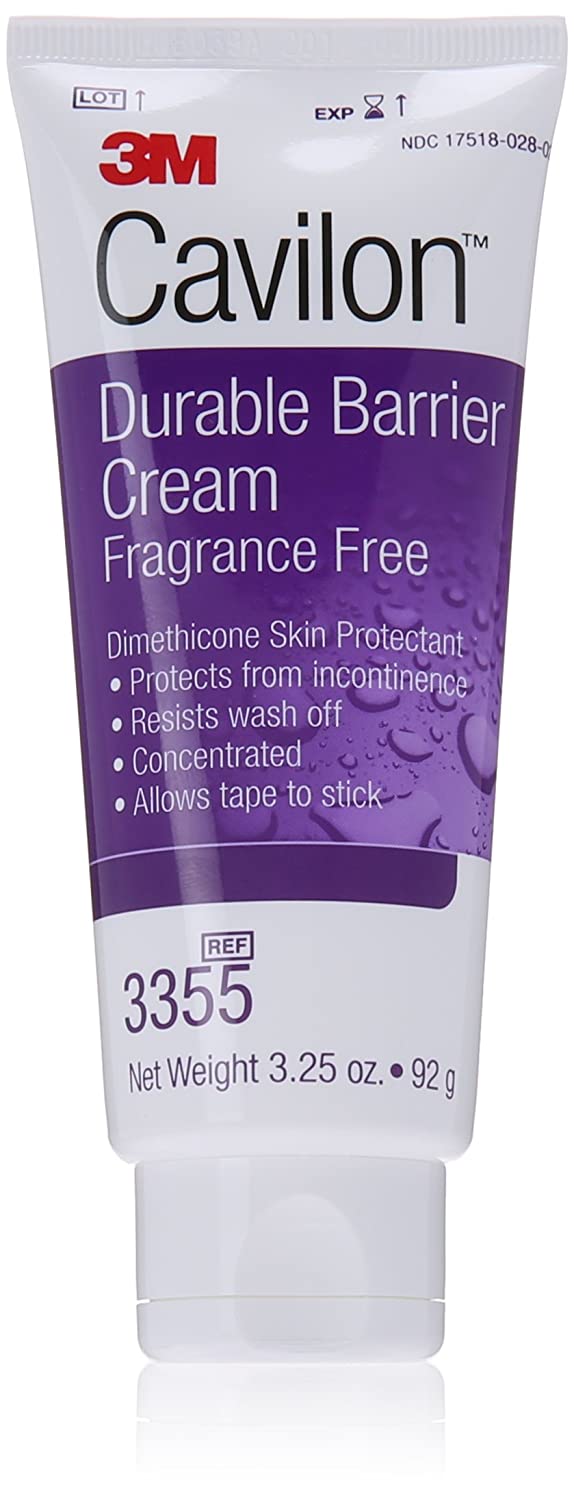
3M Cavilon is a hygienic, non-wetting cream that's perfect for people who are prone to urinary tract infections. It's specifically designed to protect against urine and other body fluids, so it will not run or drip when you're wearing it during medical procedures like catheterization or cystoscopy.
It's also great for anyone with a skin condition that causes excessive sweating. Whether you have eczema, psoriasis, or hyperhidrosis (excessive sweating), this hygienic protection cream will help keep your clothes dry while still providing the soothing benefits of a moisturizer on your skin.
You can use Cavilon as needed, either before or after your procedure, and it won't wash off in the shower like some other products do. The lightweight formula absorbs quickly into the skin without leaving any residue behind and doesn't feel sticky or oily - just smooth and comfortable all day long!
Calmoseptine Moisture Barrier Skin Ointment
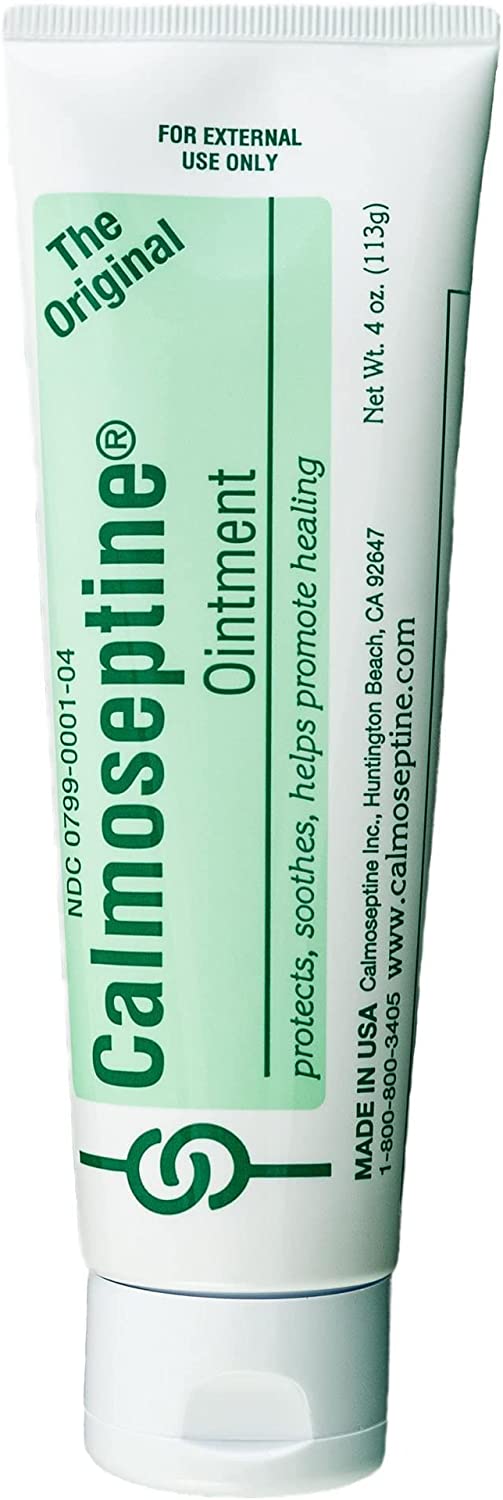
I've been on the hunt for a good moisturizer lately, and I'm happy to report that this one has impressed me. The product is made with 15.7% lanolin, which is a great ingredient for keeping skin hydrated and smooth.
The ointment also contains menthol, which helps to reduce any redness or irritation you may experience after using it. The price point of $18 isn't cheap, but considering how long these tubes last - you can definitely justify the cost if you're looking for something that'll keep your skin looking healthy all year round.
Medline Soothe & Cool Barrier Ointment
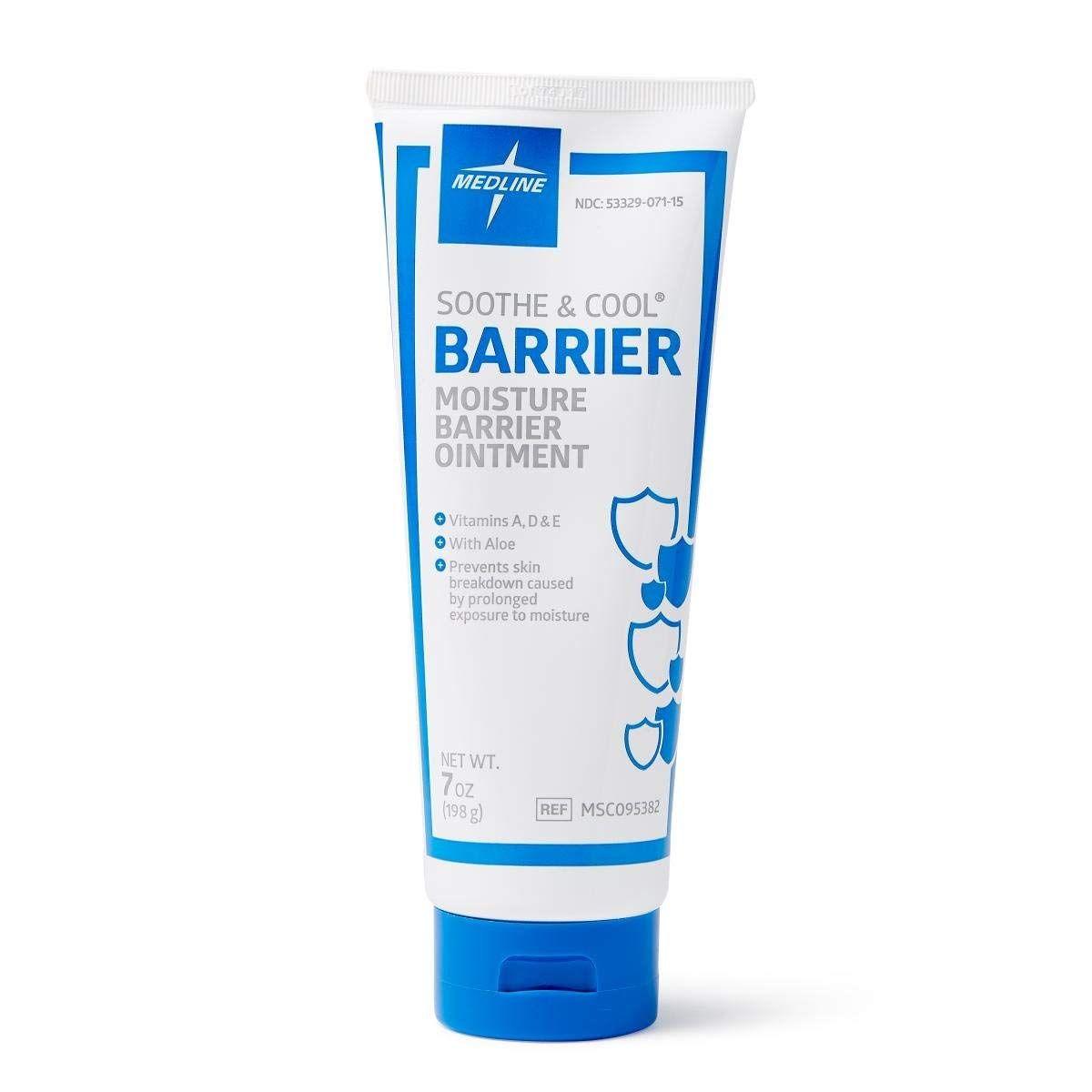
Moisture barrier ointment is a must-have product for anyone who experiences incontinence or post-op wound drainage. The Medline Sootme Cool Moisture Barrier Ointment helps to prevent skin breakdown caused by prolonged exposure to moisture, urine and fecal matter.
The unscented formula is perfect for cases of incontinence, post-op or wound drainage where scents may be an issue. It forms a protective barrier on at-risk skin and helps nourish the skin with aloe plus vitamins A, D and E to help protect against irritation. This ointment also has a premium petrolatum formulation that forms a protective barrier on at-risk skin and helps prevent moisture, urine and fecal matter from contacting your skin.
It's easy to apply with one hand - just pat onto the area where you need protection most. And since it's so affordable, you can always have this handy tube of moisture barrier ointment close by in case of any unexpected moments when you need it!
Medline - Soothe and Cool Inzo Barrier Cream
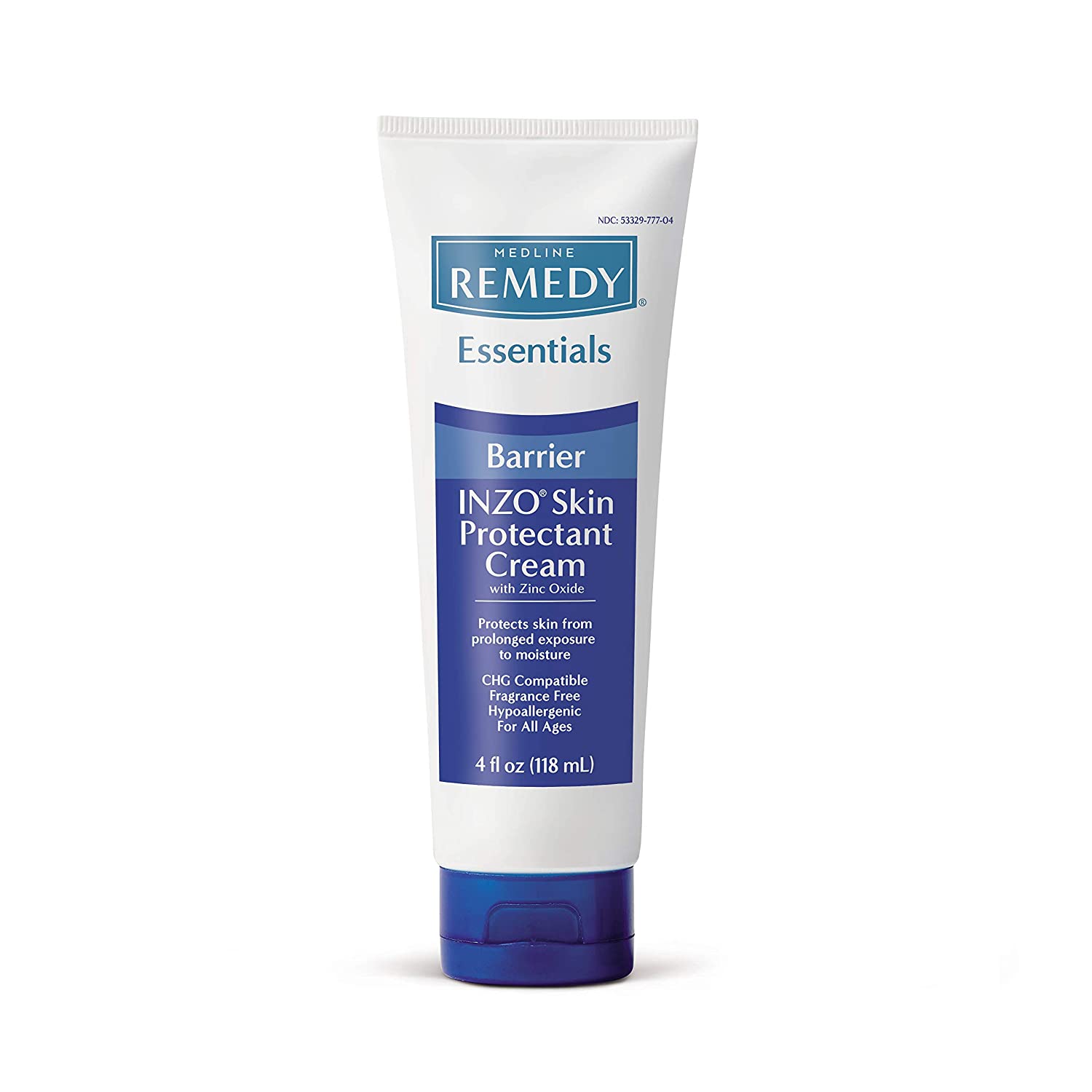
The Medline Inzo S&C Barrier Cream is a great choice for anyone looking to protect their skin from moisture and urine. The non-petrolatum formula won't obstruct brief pores, leaving your skin free to breathe without being occlusive.
This cream forms a protective layer on the skin that prevents maceration damage, allowing the skin to breathe without being occlusive. It's ideal for ostomy sites or peri wound care to protect against maceration damage. This barrier cream can be used by people with incontinence or wounds at home or in the hospital, making it an excellent option for everyone who wants to prevent moisture and urine from damaging their skin.
It's also formulated without dyes or perfumes so you don't have to worry about irritation when using this product. With its affordable price point and easy application method, this barrier cream is an excellent option for anyone looking to prevent moisture and urine from damaging their skin.
CareALL Barrier Ointment
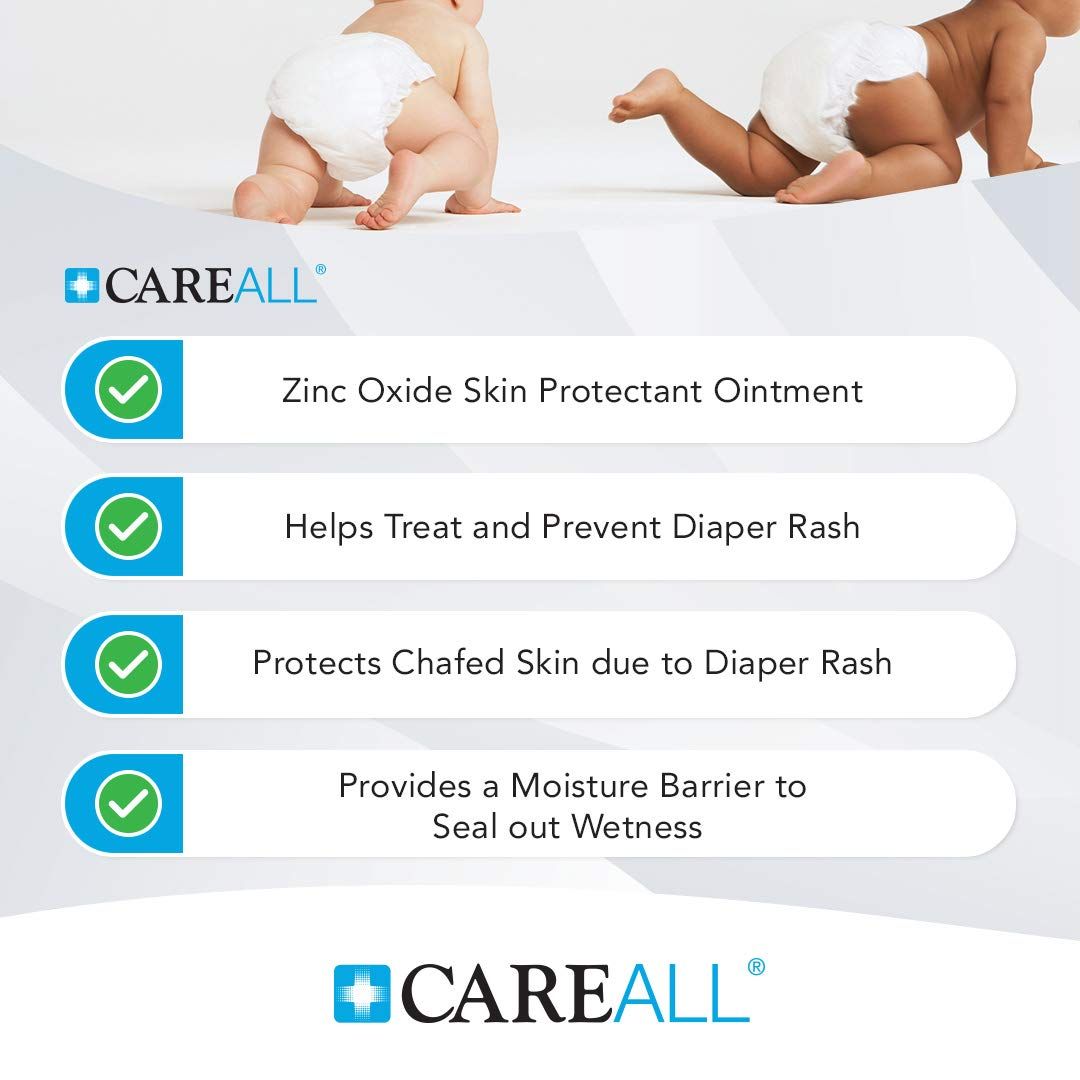
The NWI CareAll Zinc Oxide Ointment is a great option for protecting your baby's skin against diaper rash. This ointment is designed to provide a barrier between the skin and wetness, preventing irritation and inflammation.
We found that it worked well in our testing, providing effective protection from diaper rash without causing any stinging or burning. It did not leave behind any sticky residue, making it easy to apply and remove without disrupting the diaper area. The product comes in a convenient tube that makes it easy to dispense just the right amount of product each time.
It also has an expiration date printed on the packaging so you know when to replace your jar if there isn't enough left for future use. Overall, we found this zinc oxide ointment to be a great option for protecting your baby's delicate skin against rashes and chafing during diaper changes.
Barrier Cream FAQs
With so many different brands and products out there, it can be hard to find the best anti-aging cream for your skin. People have a lot of questions about different creams and they want to know if they're safe and effective. Below we answer some of the most Frequently Asked Questions about using a barrier cream to help you make an informed decision on which product is right for you.
What Does A Barrier Cream Do?
Barrier creams work by creating a thin layer of protection between your skin and whatever irritant you're dealing with. This can be an insect, such as mosquitoes or ticks, or something you come into contact with often, like harsh solvents if you work in a factory.
Barrier creams are made from ingredients that include coconut oil, beeswax, shea butter, cocoa butter and even pharmaceutical-grade silicone. They form a shield over your skin that locks out the irritants but still lets your own natural sweat escape for healthy breathing.
As these creams create a barrier on the surface of your epidermis (the top layer of skin), some may have an oily feel to them initially when applied; however it is important not to let this put you off applying them liberally wherever necessary.
Is Vaseline Considered A Barrier Cream?
Yes, Vaseline is a barrier cream. In general, barrier creams are designed to protect the skin from outside irritants (such as cold weather or harsh chemicals). These include products like Aquaphor and Eucerin.
Vaseline is an ointment which means it's specifically formulated to penetrate the outer layer of the skin (the epidermis). This allows it to act as a lubricant and penetrate underneath bandages or dressings. Vaseline is also specially formulated to not leave behind any sort of greasy residue on your skin or clothing.
When Should You Not Use Barrier Cream?
Some people may be allergic to the ingredients in barrier cream, so it's important to check that you're not sensitive before use. If you experience any irritation or burning sensations after application, seek medical advice as this could indicate a serious allergy.
If you have cuts or open wounds on your skin where you apply the cream, it can increase the risk of infection and therefore it's best to avoid using this type of barrier ointment if possible. It's also important not to use topical pain relief products such as ibuprofen with barrier ointments unless instructed by a doctor due to potential side effects.
Some products are specifically designed for babies and children but other types of barrier cream can contain strong ingredients that aren't suitable for young children such as iodine. Therefore, always check product instructions first before applying any type of barrier ointment around the neckline or diaper area if you have young children.
Where Should You Apply Barrier Cream?
Barrier creams can be applied to any part of the body that may come into contact with the sun, but there are some areas that need extra protection.
For this reason, it's worth checking which areas have heightened sensitivity to sun damage, and paying extra attention to those places when you apply your cream. These include:
Exposed skin: This includes anywhere on your face except for parts covered by your hat or sunglasses (which is why we recommend chargingable UV-protecting eyewear), as well as arms and legs if you're wearing shorts or a tank top.
How Often Should Barrier Cream Be Applied?
A good general rule of thumb is that if you're going to be exposed to the sun, you should apply sunscreen but also a separate product containing UVA protection and/or a physical barrier ingredient. The same goes for barrier cream: Regularly reapply it after washing your hands, especially if they're exposed to water or harsh soaps.
The Centers for Disease Control and Prevention (CDC) recommend reapplying hand sanitizer every two hours; however, this advice may not be suitable for all people with allergies or sensitive skin (barrier creams can often contain preservatives). If you feel unsafe without frequent hand sanitizing, talk to your doctor about whether it's safe for you – otherwise, aim to apply barrier cream at least once an hour.
Does Barrier Cream Really Work?
Unfortunately, it's not that simple. You see, the best way to protect your skin from burns is to prevent them in the first place; for example, by avoiding hot places like direct stovetops and fireplaces.
While this may sound obvious, it can be easy to forget when you're busy with other tasks. To help you remember, a lot of people keep barrier cream on hand so they can quickly apply it at the first sign of discomfort or flare-up.
And while this may still give you some protection against burns (especially if you use a high-quality cream), there's no guarantee and experts say it's much better to simply avoid getting burned in the first place.
How Do You Know If Your Skin Barrier Is Damaged?
It's important to look out for the early signs of a damaged skin barrier so that you can take action before your eczema returns. If your skin feels dry, tight or itchy – especially after bathing or showering – then this could be a sign that there is damage in the outer layer of your skin. You might also notice small cracks appearing on your elbows and knees if you don't properly moisturize these areas.
A watertight seal is essential for preventing infections from bacteria and viruses getting into the deeper layers of your skin, which is why it's crucial to keep a damaged skin barrier repaired immediately after exposure to water.
Can You Get Barrier Cream Over The Counter?
Barrier cream is available in most pharmacies and supermarkets, so you can buy it when you need it. If you're buying online, be sure to read the customer reviews first to see whether the product is any good.
If you use barrier cream every day, then it might make sense to stock up on some bulk packs from Amazon or Walmart. You'll save money this way and have plenty of protection for your next vacation or beach trip.
You should also look out for special offers and promotions when buying barrier cream over the counter . Some brands often run discounts that can help you get a better deal. It's worth keeping an eye out for these if you find yourself needing more cream more often.
What Is The Difference Between Barrier And Moisturizing Cream?
Barrier creams are specially formulated to protect the skin from external irritants, such as harsh weather and other environmental conditions. They create a barrier that seals in moisture, which helps keep your skin soft and healthy.
Moisturizing creams contain ingredients that hydrate the skin without leaving a greasy residue. This type of cream is ideal for people with dry or sensitive skin who don't want to feel like their faces are covered with product.
Can I Use Barrier Cream Everyday?
Barrier creams are designed to be used whenever you're exposed to the elements: either extreme heat or extreme cold. It's important not to overdo it and to follow the instructions on the packaging, but many people do use these products every single day for months at a time without any issues.
If you have a particular skin condition like eczema, you might wish to consult your doctor first before using a barrier cream everyday. They may advise that it's not suitable for your circumstances, especially if you apply other topical medications alongside it.
It's also worth bearing in mind that many barrier creams are quite greasy and can leave an oily residue behind unless properly washed off. For this reason, you may prefer not to wear them in situations where you'll be touching sensitive materials like white cotton or silk.
Conclusion
Barrier creams are a great way to protect your skin from harmful irritants and allergens. They have been shown to reduce the severity of allergic reactions in many people, making them an excellent choice for those with sensitive skin or allergies. To get the most out of barrier creams, it's important to choose one that fits your individual needs. Consider factors such as price, ingredients, and availability when selecting a product that is right for you. With so many options available on the market today it shouldn't be too difficult to find one that works for you!









